
1. One step closer to biorobots
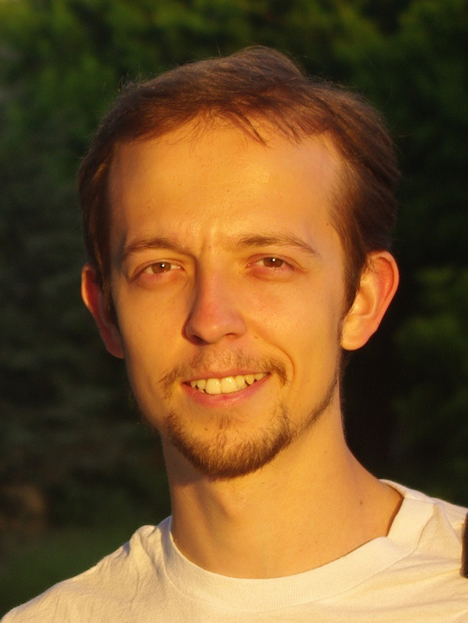
Maksim Nikitin. Source: ibch.ru
In 2014 Russian scientists were finally able to program nanoparticles, making a step towards creating completely new medicinal agents. Now nanoparticles can supply medicine to cells based on the immediate analysis of several parameters. With the new method, nano or microparticles can be transformed into a miniature "biorobot" capable of making decisions by itself, such as if it should interact with a cell or not. The discovery was made by 27-year-old Russian scientist Maksim Nikitin. He dedicated 70 hours a week to his experiments, spent almost $20,000 of his own money on reagents and performed some of the experiments at home because guards would not give him access to the institute at night.
2. Russian sex geckos
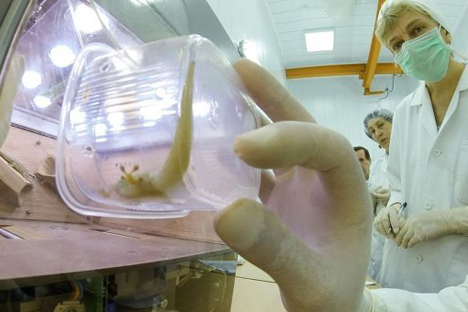
Source: Press photo
In July scientists launched the Foton-14 biosputnik into space. It contained five geckos, flies, silkworm eggs, mushrooms and plant seeds. The main objective of the experiment was to examine the influence of microgravitation on the geckos' sexual behavior. However, the mission ended tragically. The satellite returned to Earth in September, but all the geckos were dead. The Russian Academy of Sciences could not determine the reason for their death. For now scientists attribute it to "an unknown space factor," possibly a virus or bacteria. Another theory proffers that the geckos died due to extreme cold, but this has not been proven.
3. YotaPhone 2
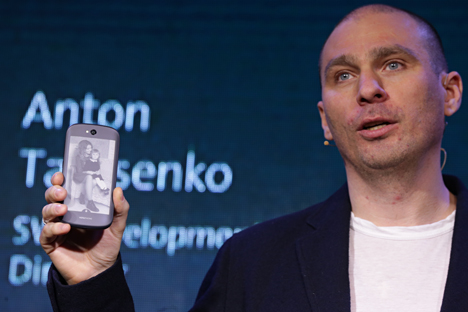
Source: TASS
The first Russian dual-screen gadget, the YotaPhone2, was introduced on the world market. Yota Device President Vladimir Martynov believes that YotaPhone2 is the beginning of a new trend in the smartphone sector. The company intends to create a new device category and is ready to license the dual-screen smartphone concept to outside developers. The first YotaPhone smartphone model was not a global success and European media outlets called it "an ugly brick." However, according to Martynov, the first YotaPhone was just a trial model, while the YotaPhone2 is a mass-market product.
4. Yakov Sinai receives the Abel Prize
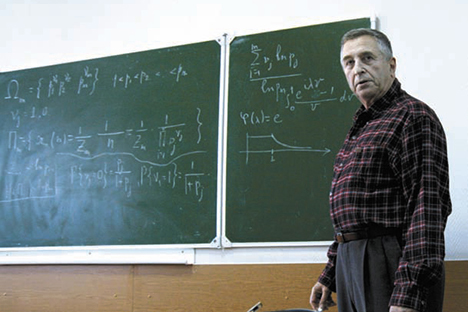
Yakov Sinai. Source: Press photo
In March mathematician Yakov Sinai, a member of the Russian Academy of Sciences and professor at Princeton University, won the Abel Prize, often described as the “Nobel Prize for mathematics”. The Norwegian Academy of Sciences and Letters called the scientist "the principal architect of most of the bridges uniting the world of deterministic (dynamic) systems with the world of possible (stochastic) systems.” His achievements include fundamental work in ergodic theory, which studies the dynamic systems' tendency to pass through all possible conditions in accordance with certain laws, and in statistical mechanics, which studies the behavior of systems consisting of a very large number or particles such as gas molecules.
5. Plankton on the International Space Station
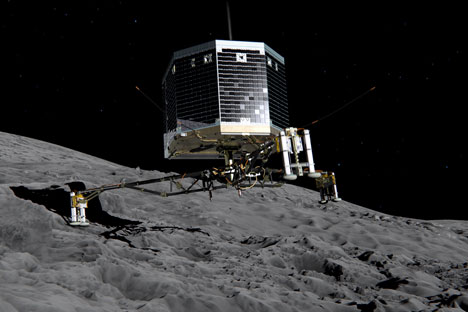
Source: Press photo
At the end of August Russian cosmonauts Oleg Artemiev and Alexander Skvortsov made an amazing discovery: they found traces of sea plankton on the surface of the ISS, practically in open space. Considering that microorganisms and bacteria survive in space, scientists are now concerned about the safety of people travelling to Mars. If these bacteria were able to survive and mutate in open space, a cosmonaut’s weakened immune system may not be able to resist infections encountered there.
6. Triazavirin against Ebola
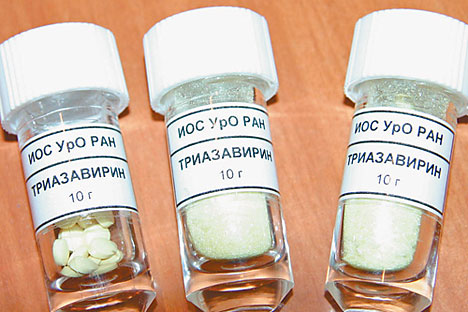
Source: Press photo
By the close of 2014 Russian pharmacies will be stocked with a new antivirus drug called Triazavirin. Developed by scientists at the Chemical-Technological Institute at the Ural State University, this medicine effectively fights many viruses and infections and can also be used to treat Ebola patients. Russian scientists believe that Triazavirin has the chance to become as successful as aspirin, man’s medicine of choice for almost 150 years.
7. The 2014 UR-116 Asteroid
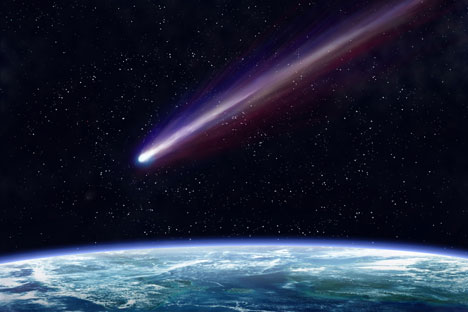
Source: Press photo
At the end of October the Russian Master robotic network of telescopes discovered the new 2014 UR-116 Asteroid, which could be a potential threat to Earth. It is 20 times bigger than the Chelyabinsk meteorite that collided with Earth in February 2013. Its trajectory will send it close to Venus and Mars, but there is also a chance that it could diverge from its original course towards our planet.
8. Will mammoths walk again in Russia?
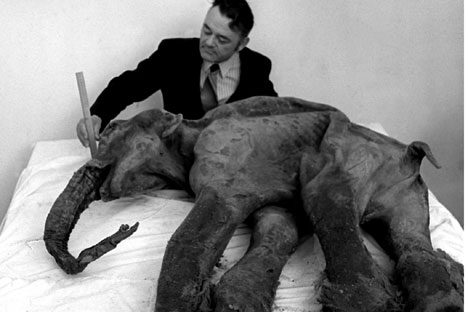
Source: TASS
In September Russian scientists began a project to clone mammoths. In Yakutia, one of Russia's northernmost regions, the authorities opened the International Center for the Collective Use of Molecular Paleontology to study the cells of prehistoric animals. The center is part of the Resurrection of the Mammoth Project. Seventy five percent of all mammoth remains have been found in Yakutia and each year scientists find new frozen specimens. After the laboratory is fitted with all necessary genetic equipment, Russian scientists intend to start working on the extraction of the animal's DNA and start the process of cloning mammoths.
All rights reserved by Rossiyskaya Gazeta.
Subscribe
to our newsletter!
Get the week's best stories straight to your inbox